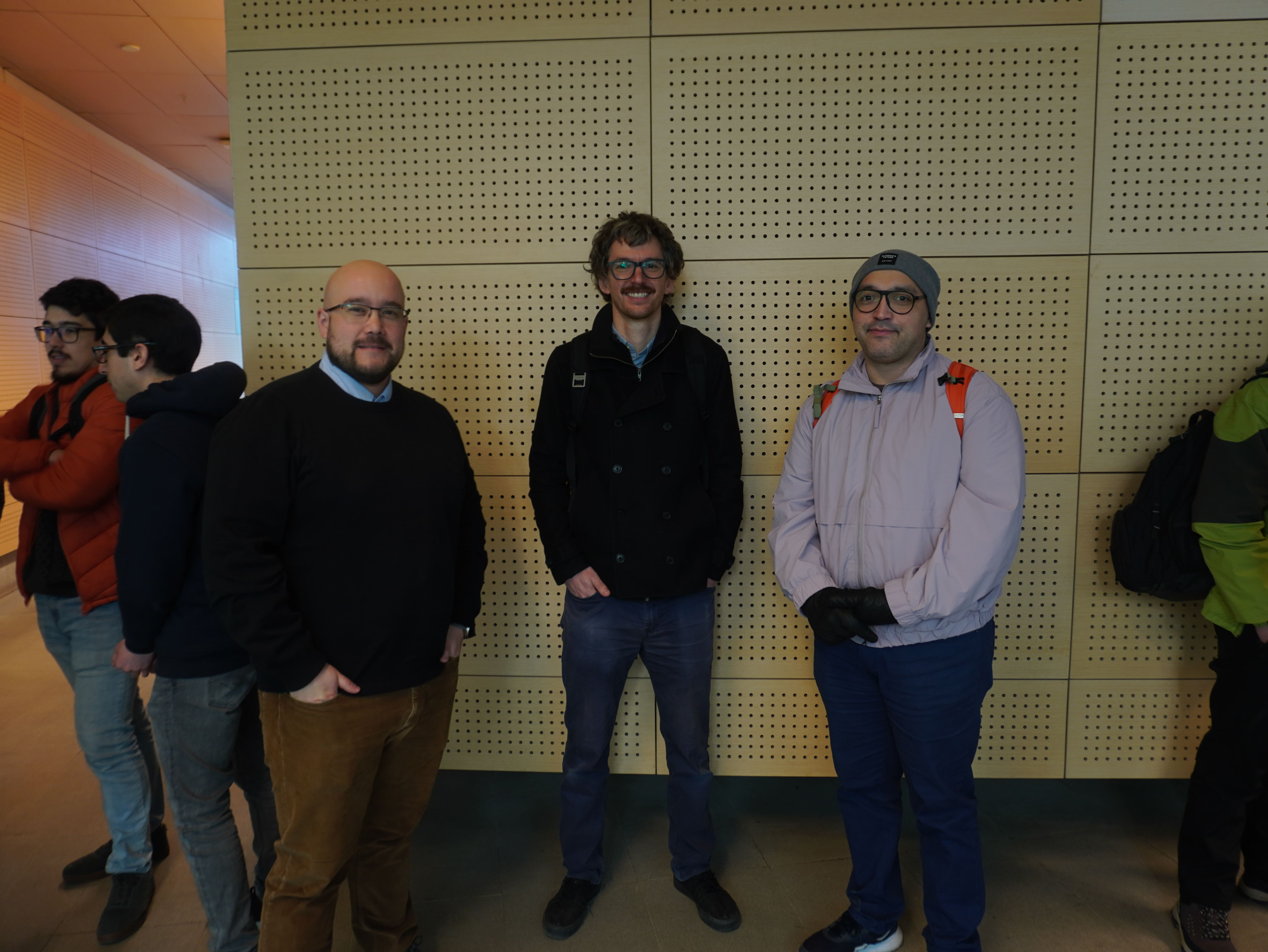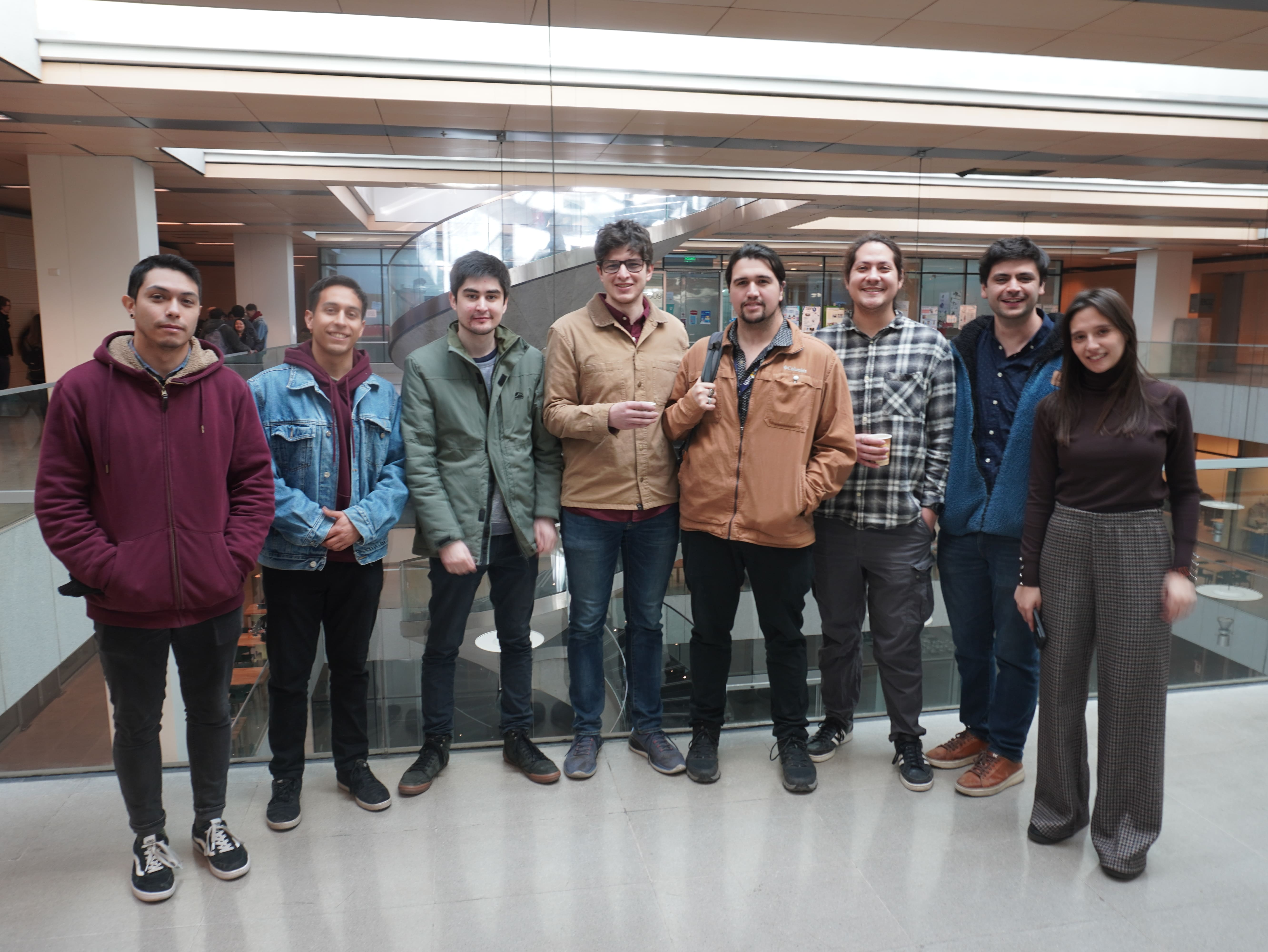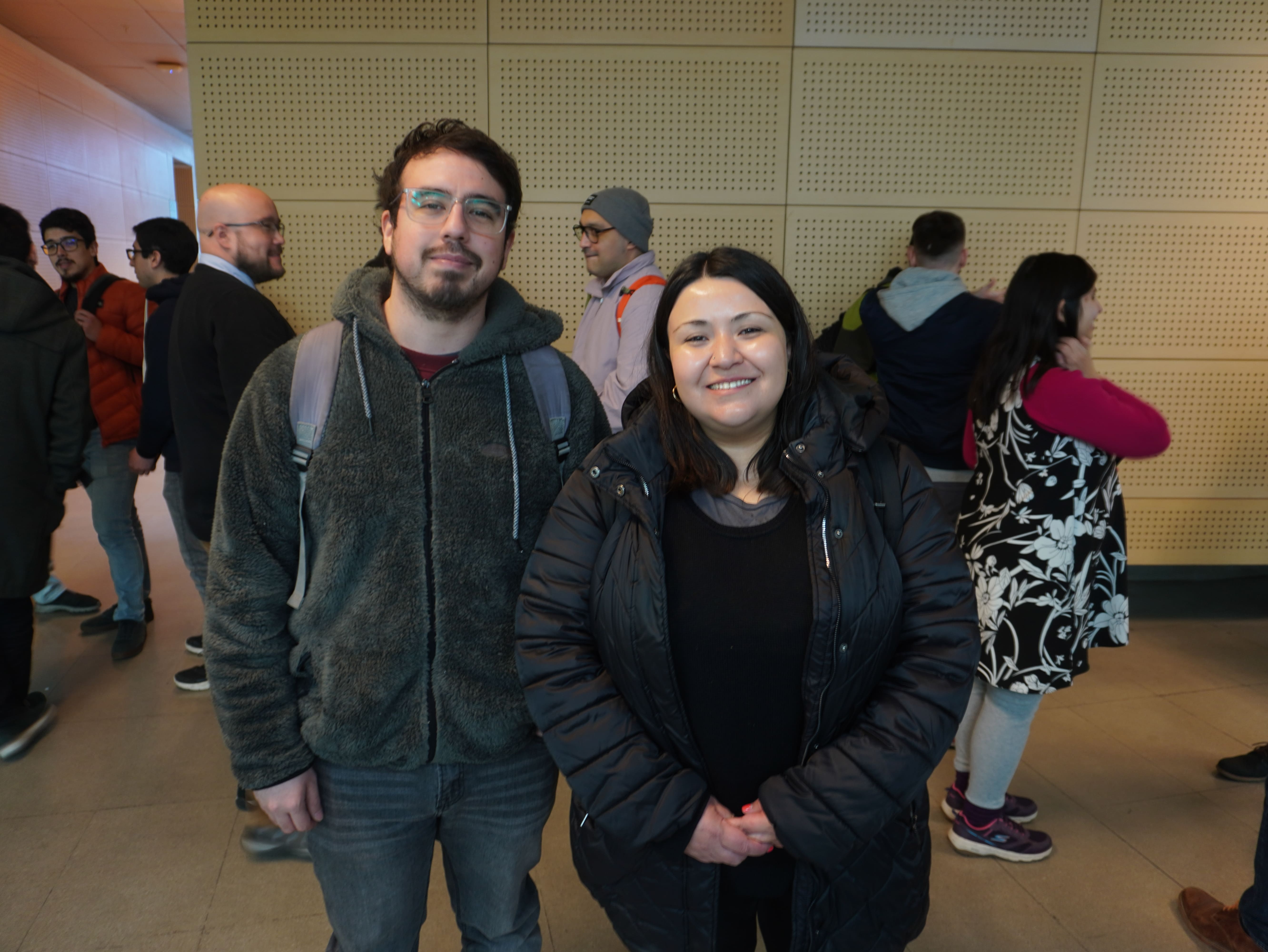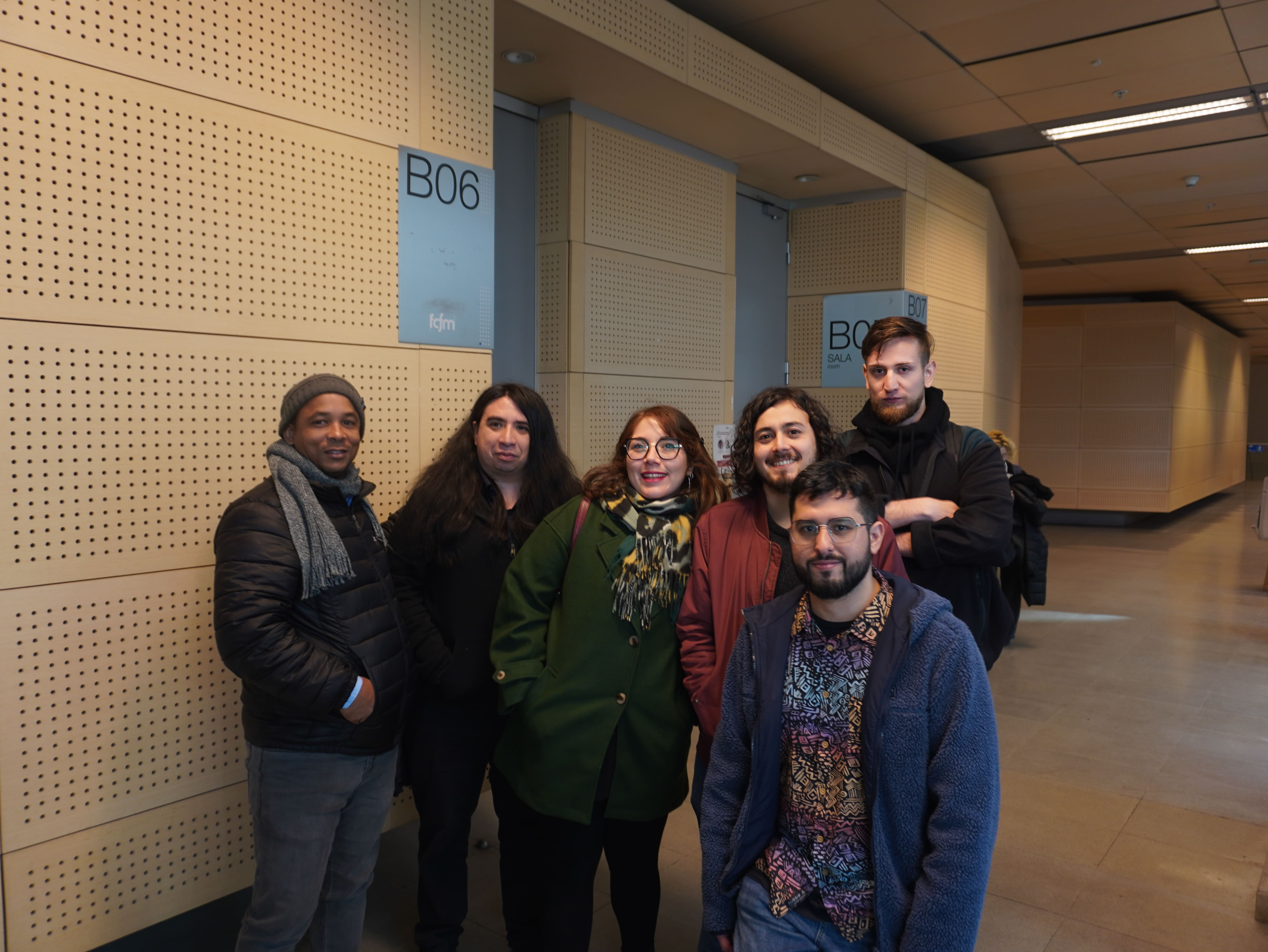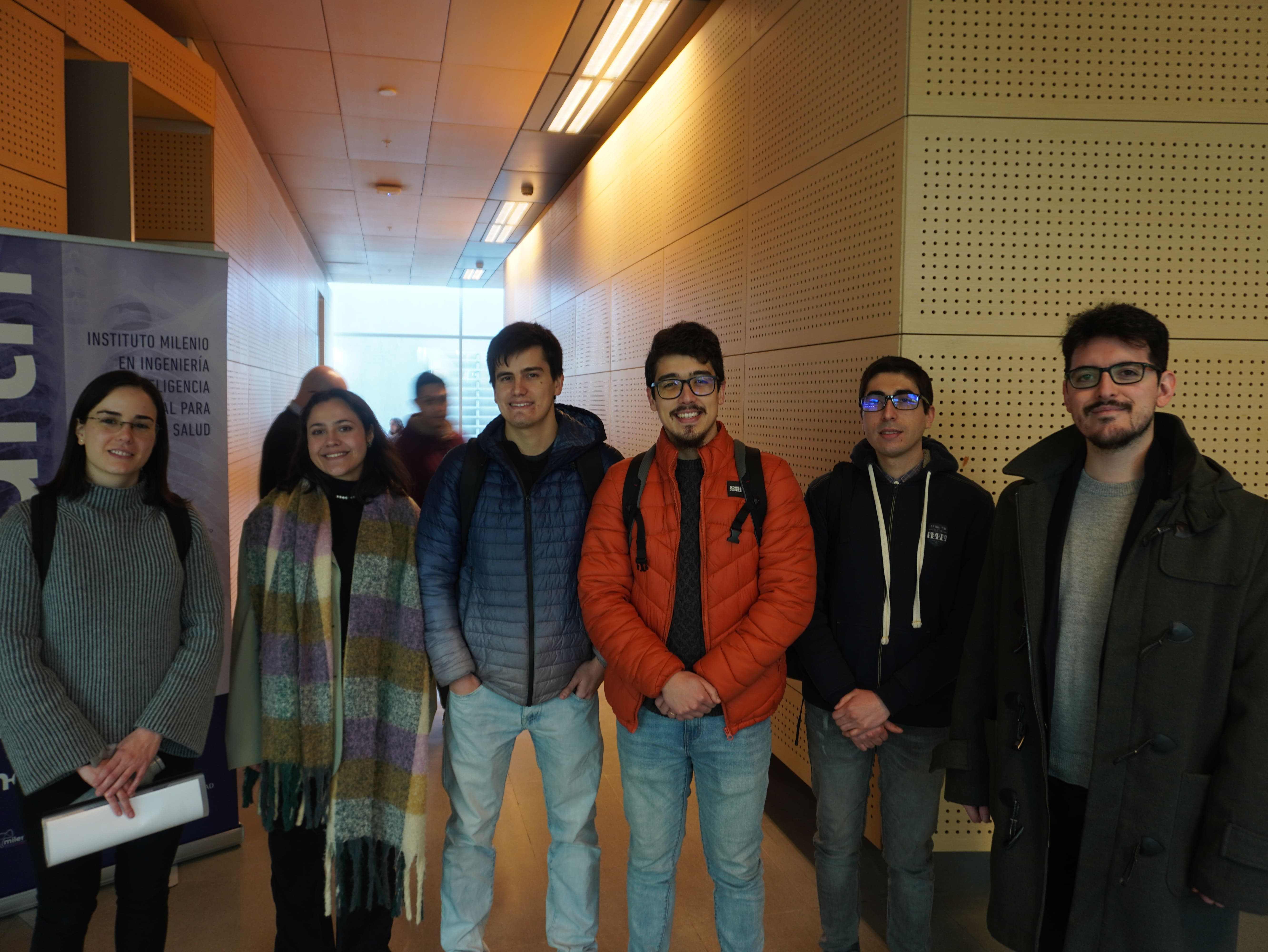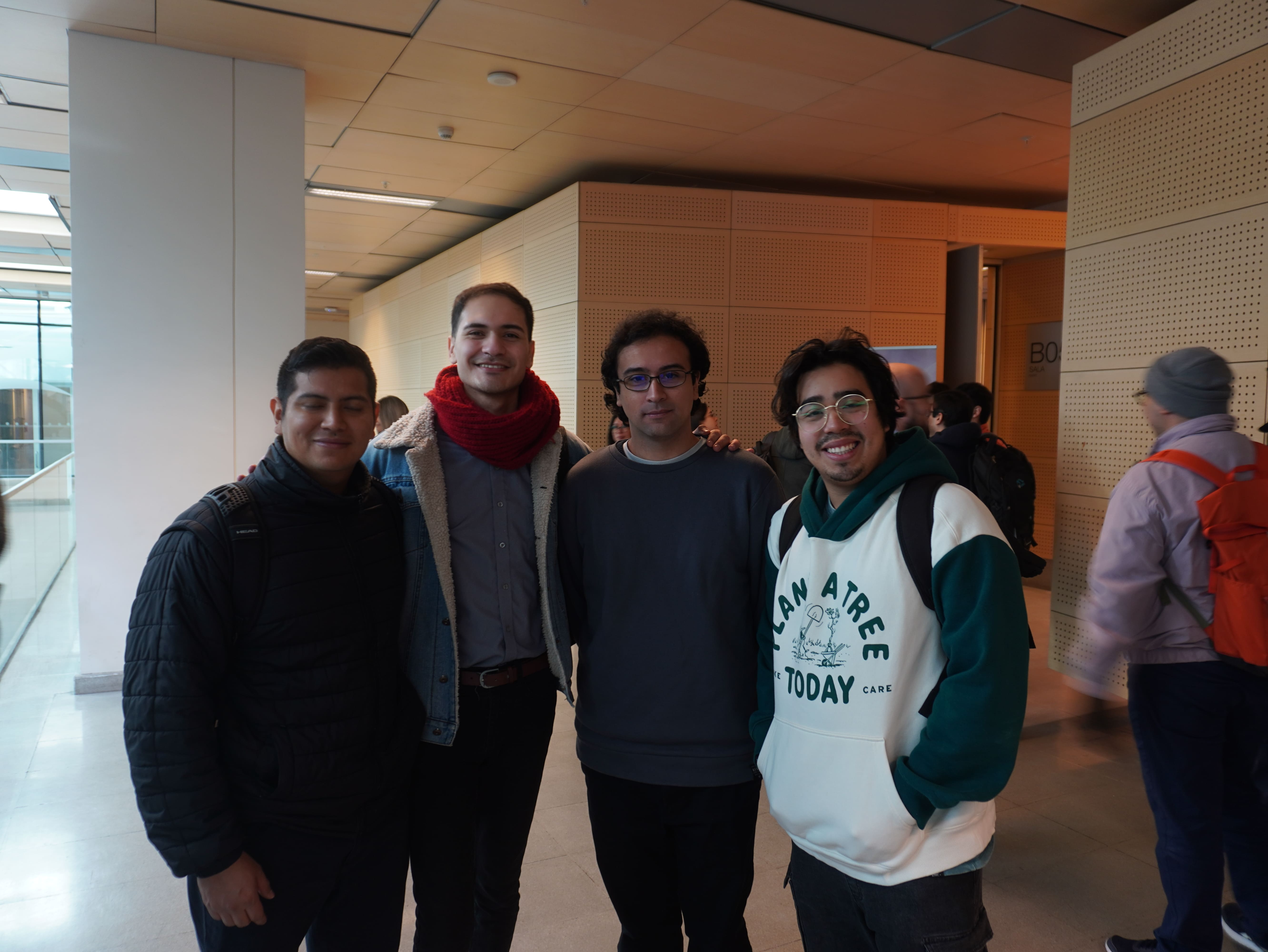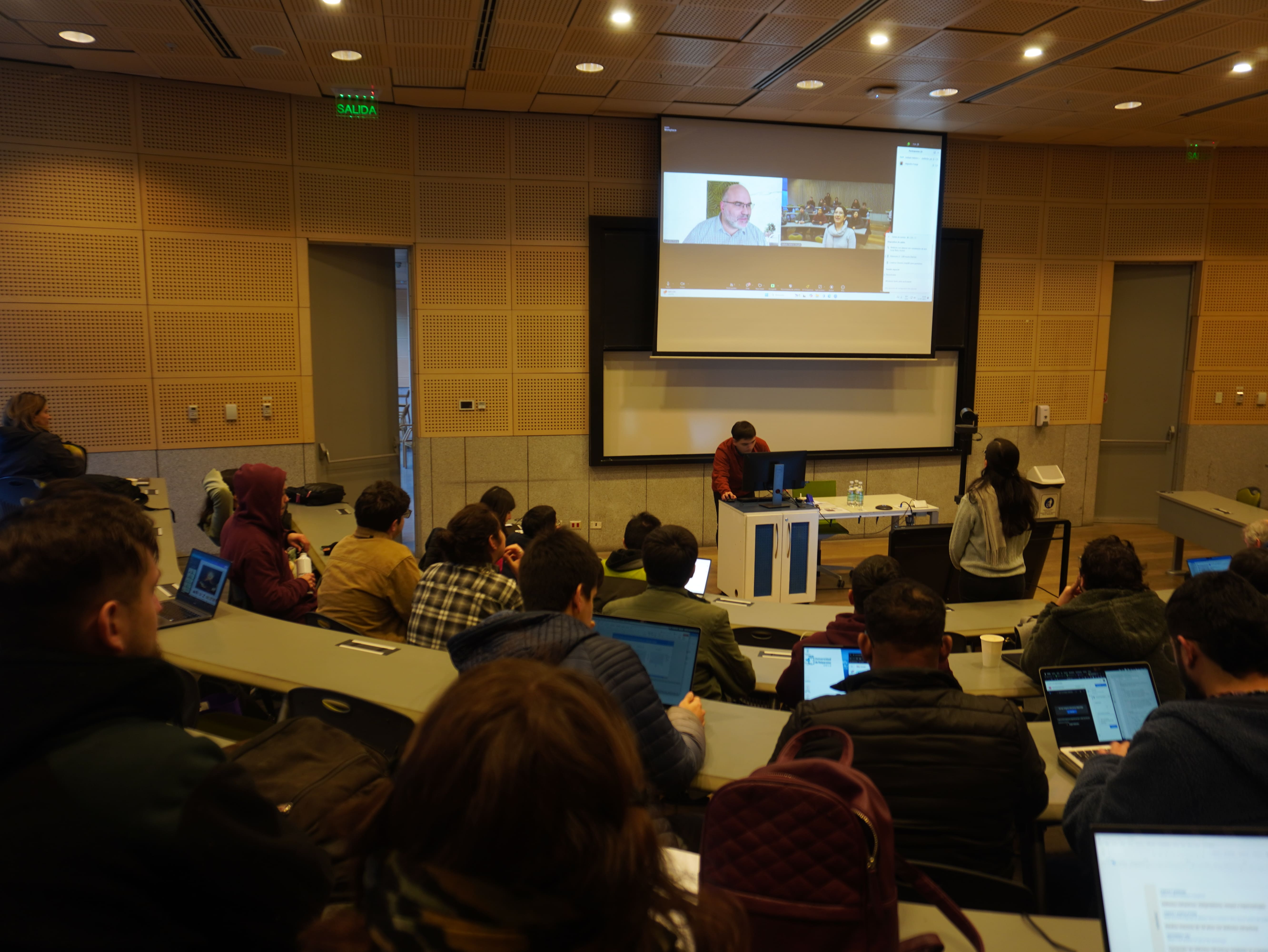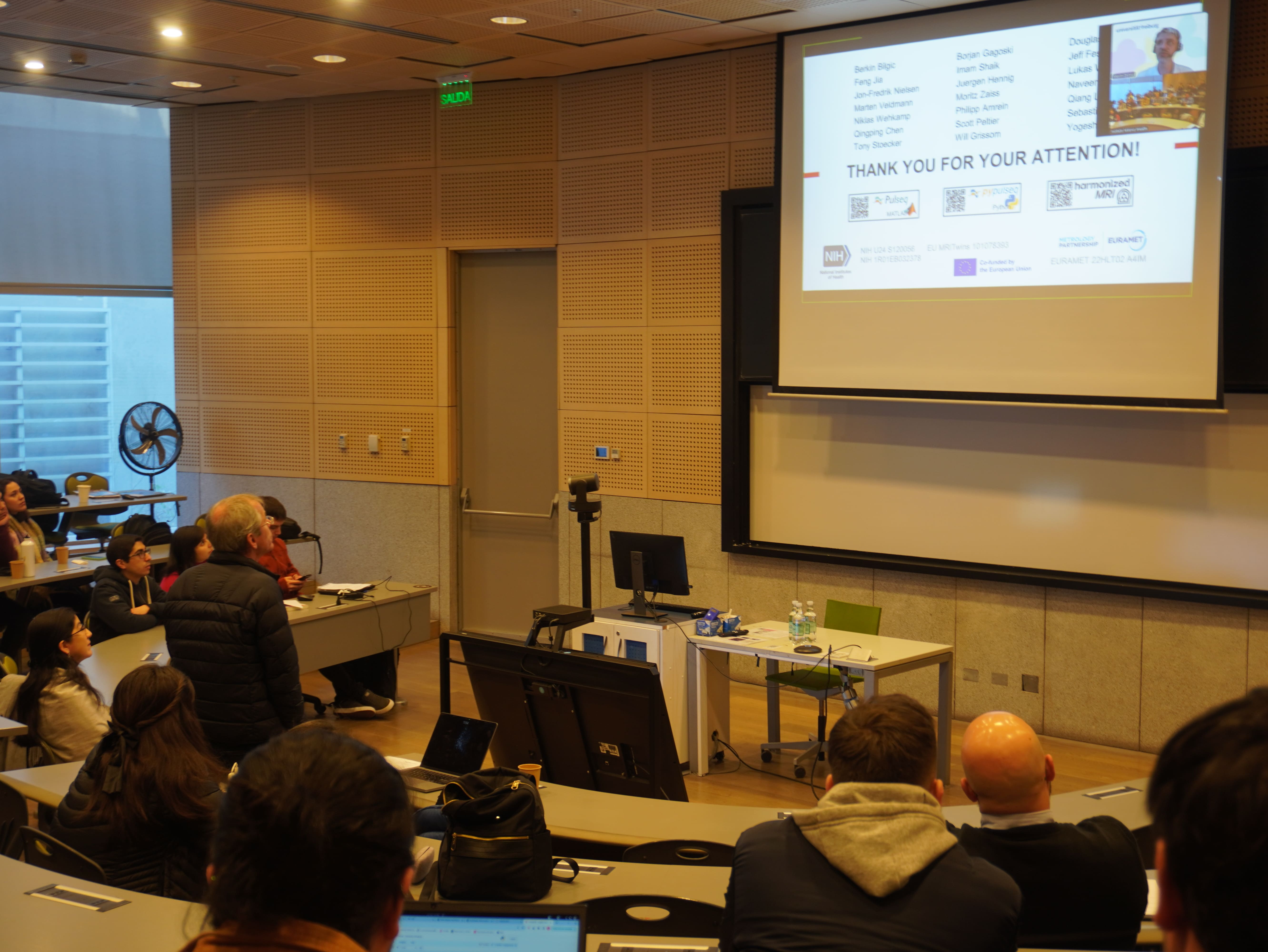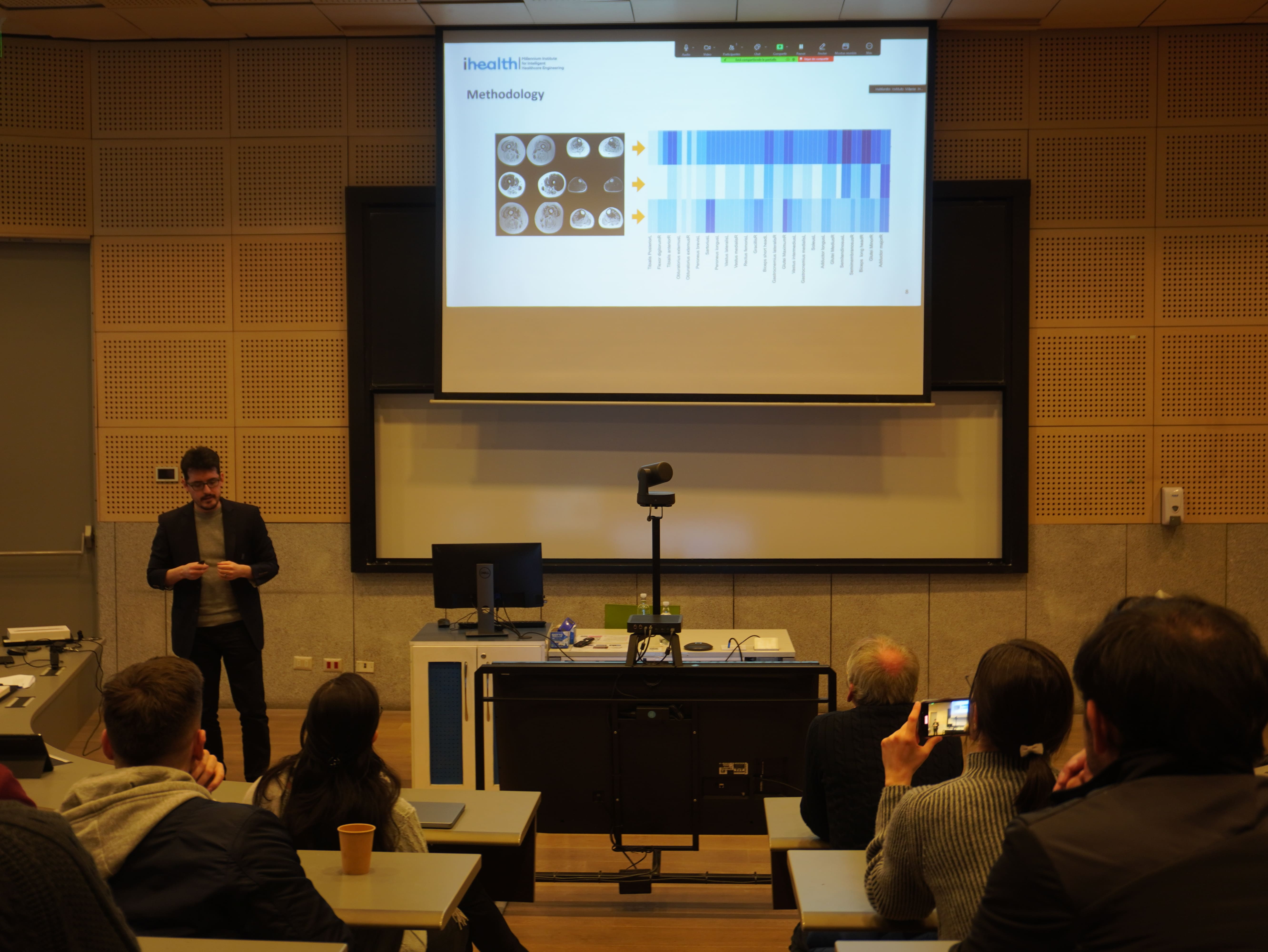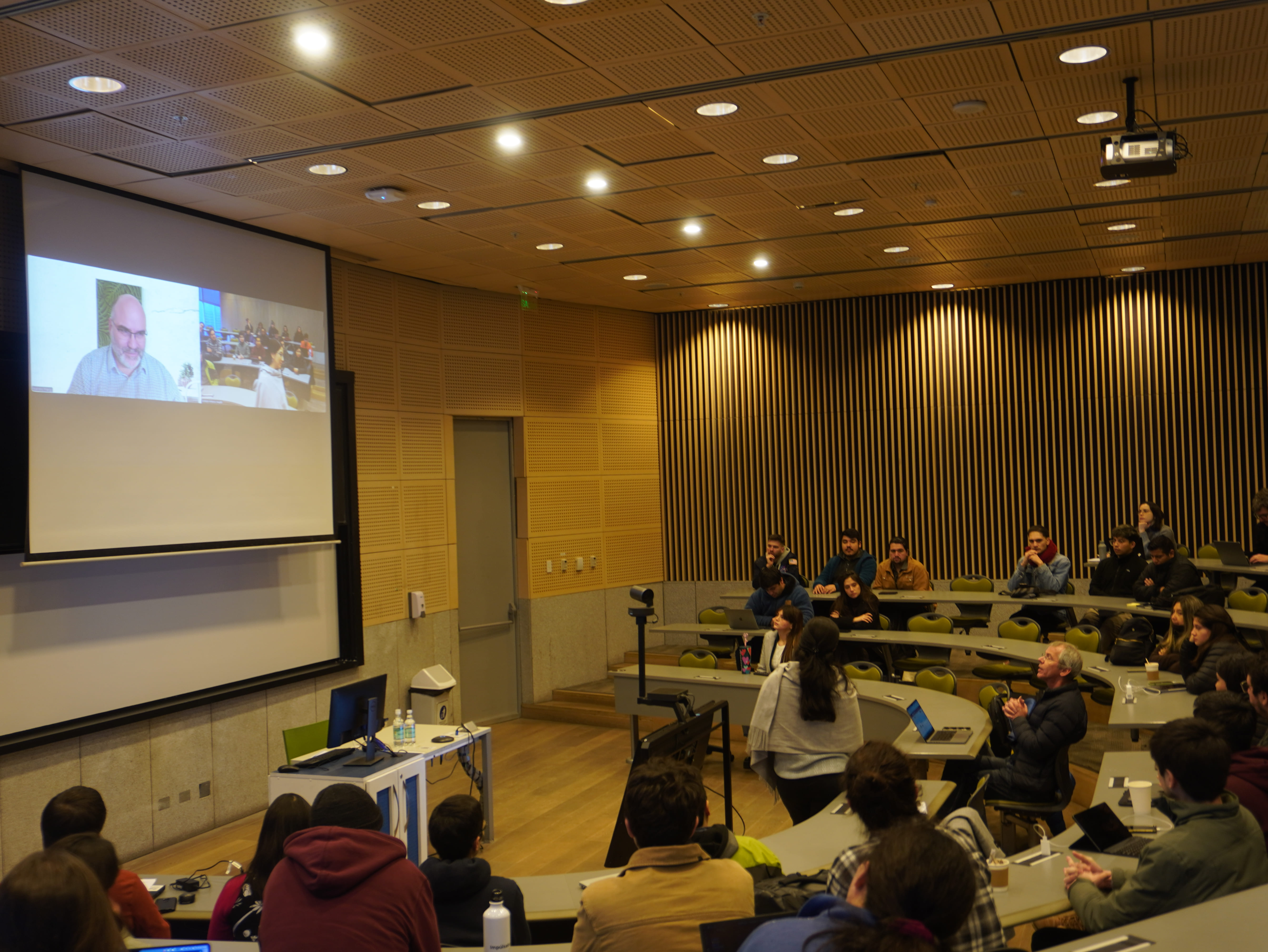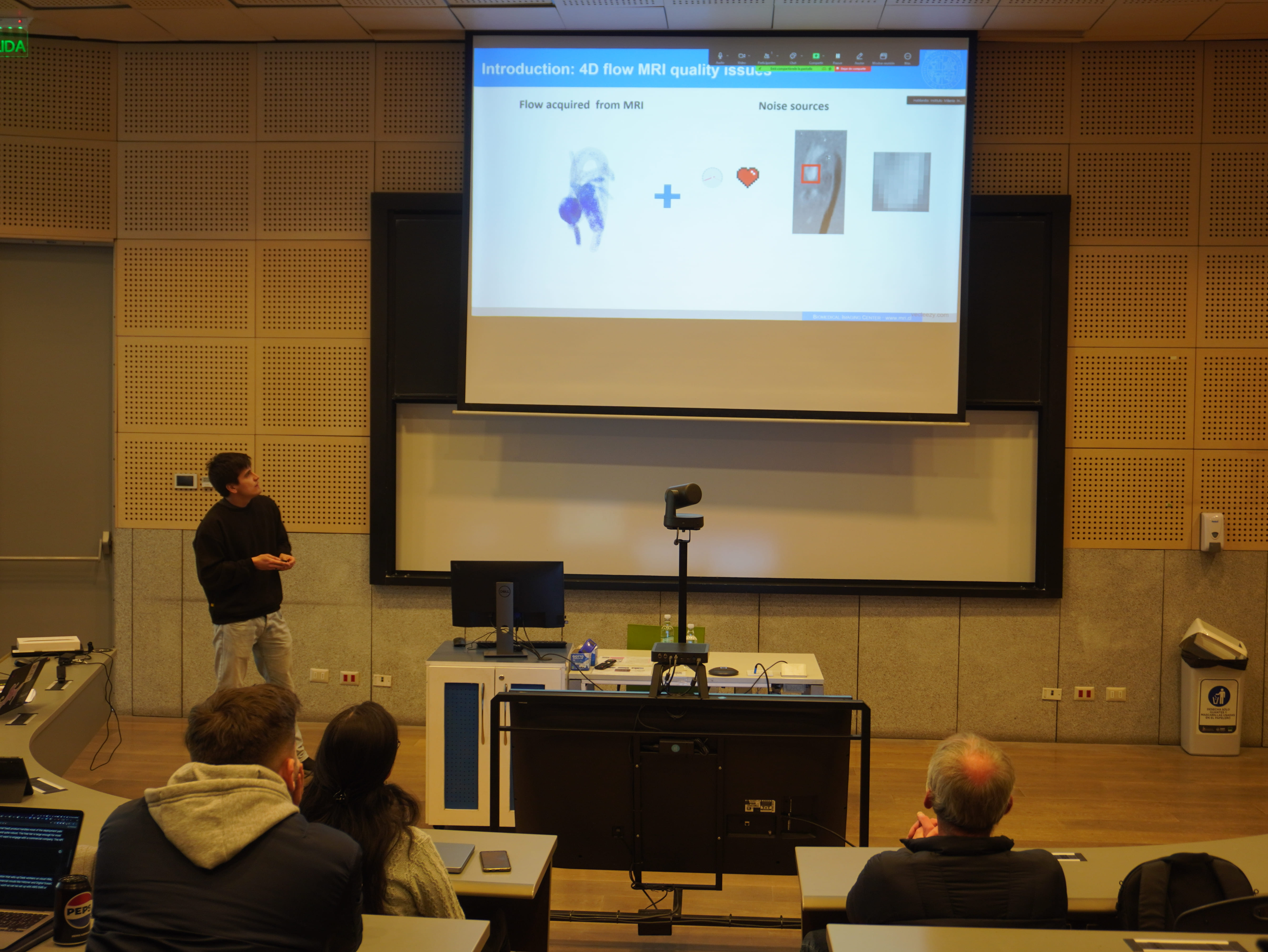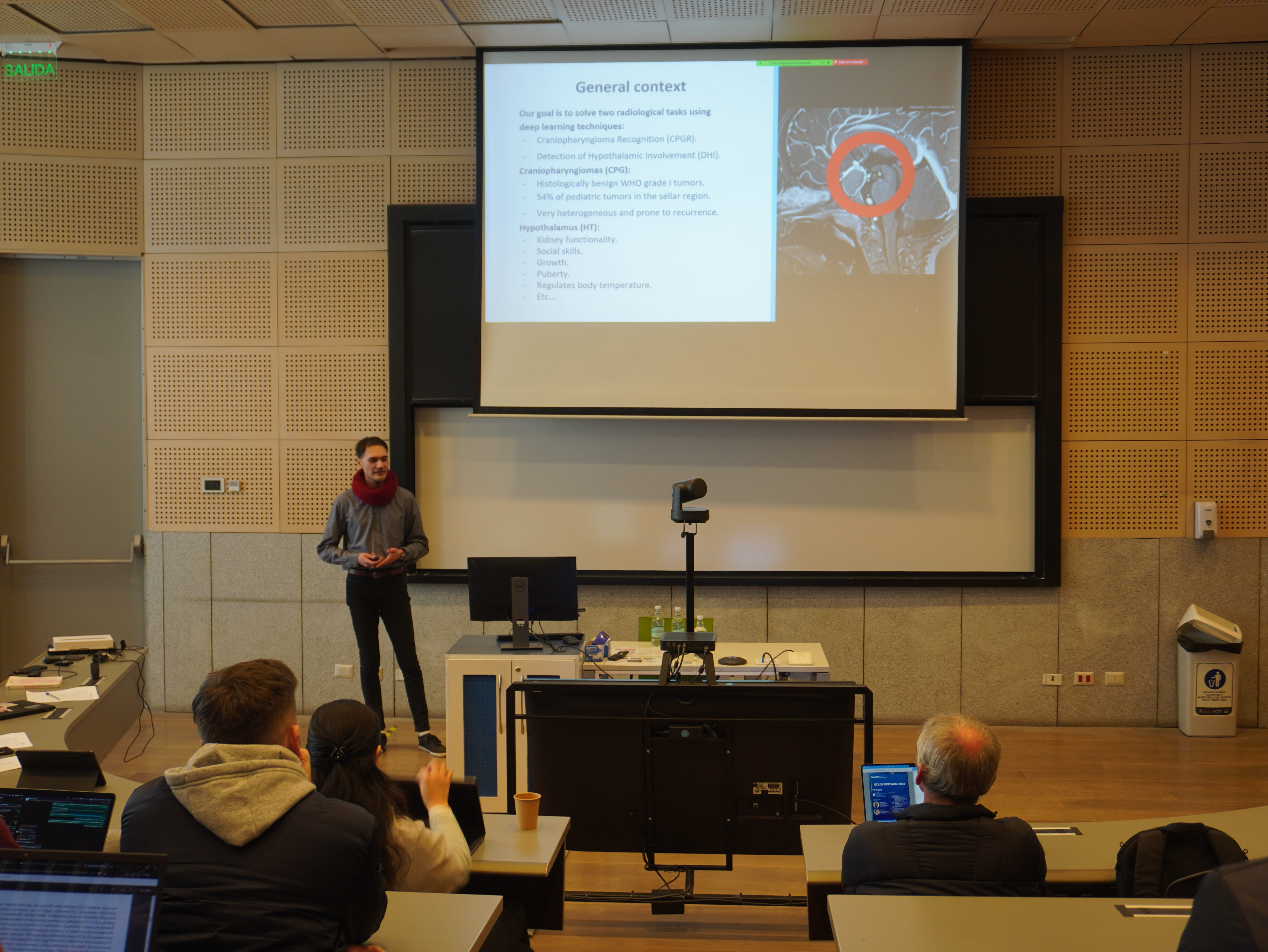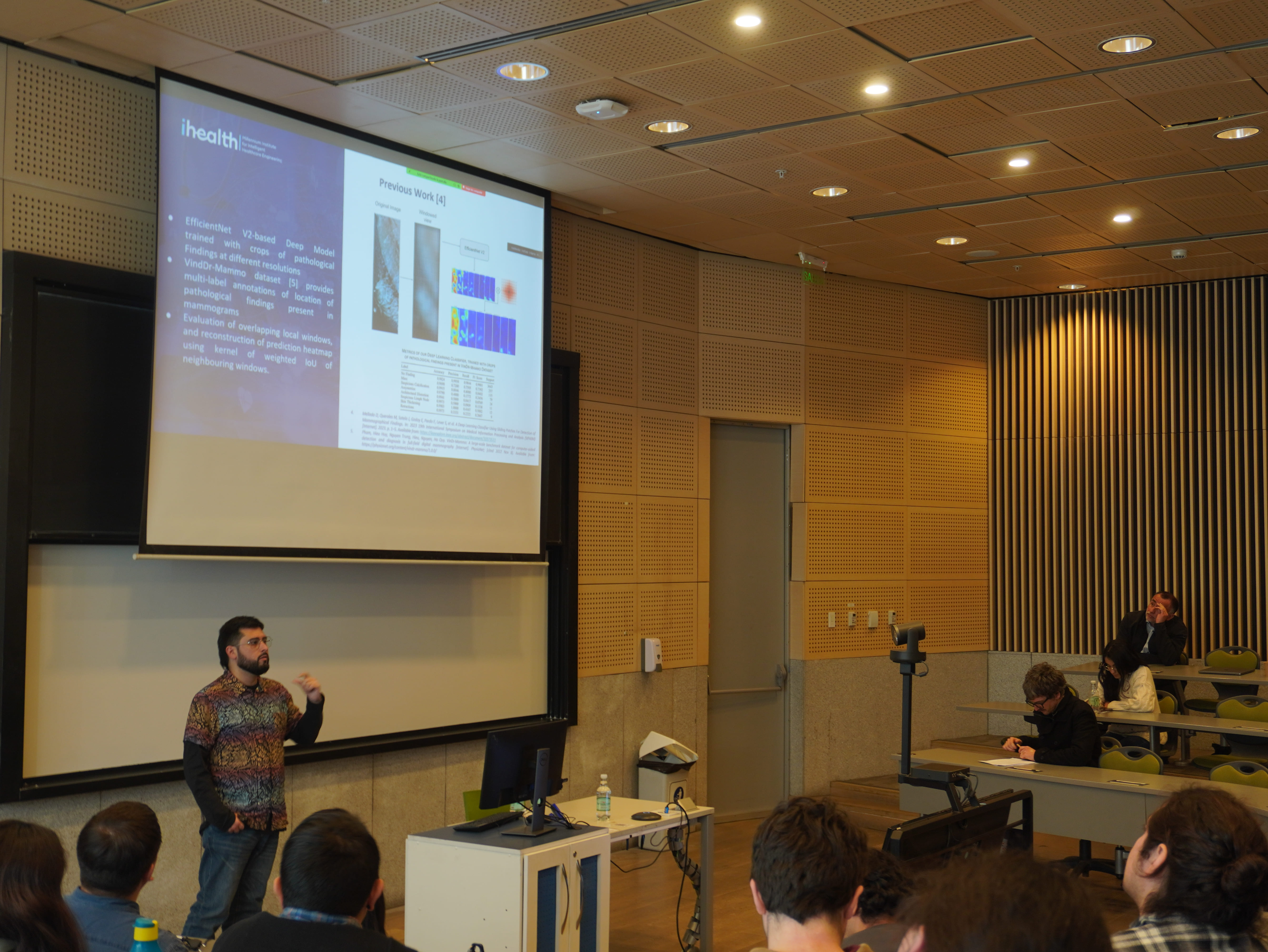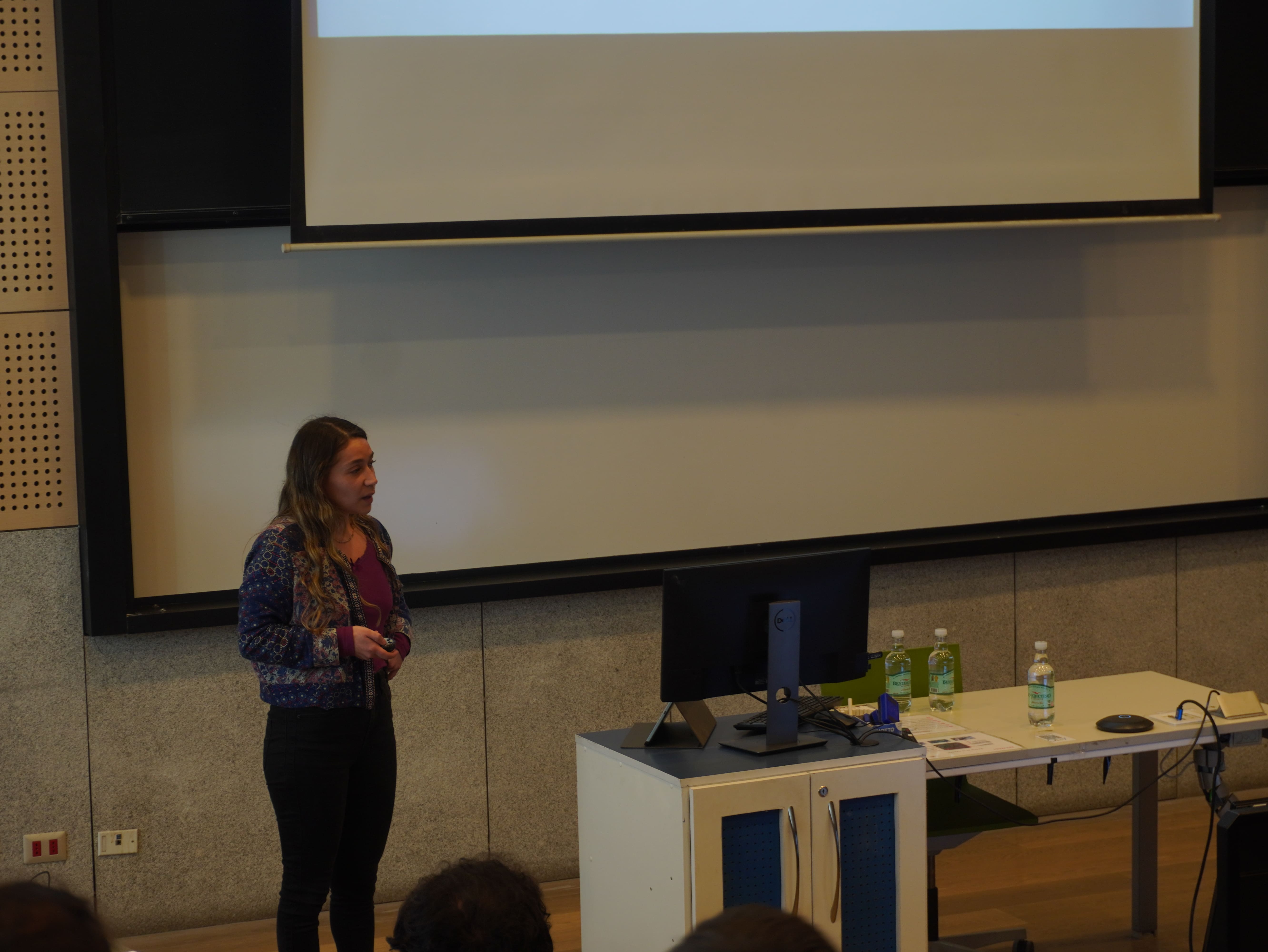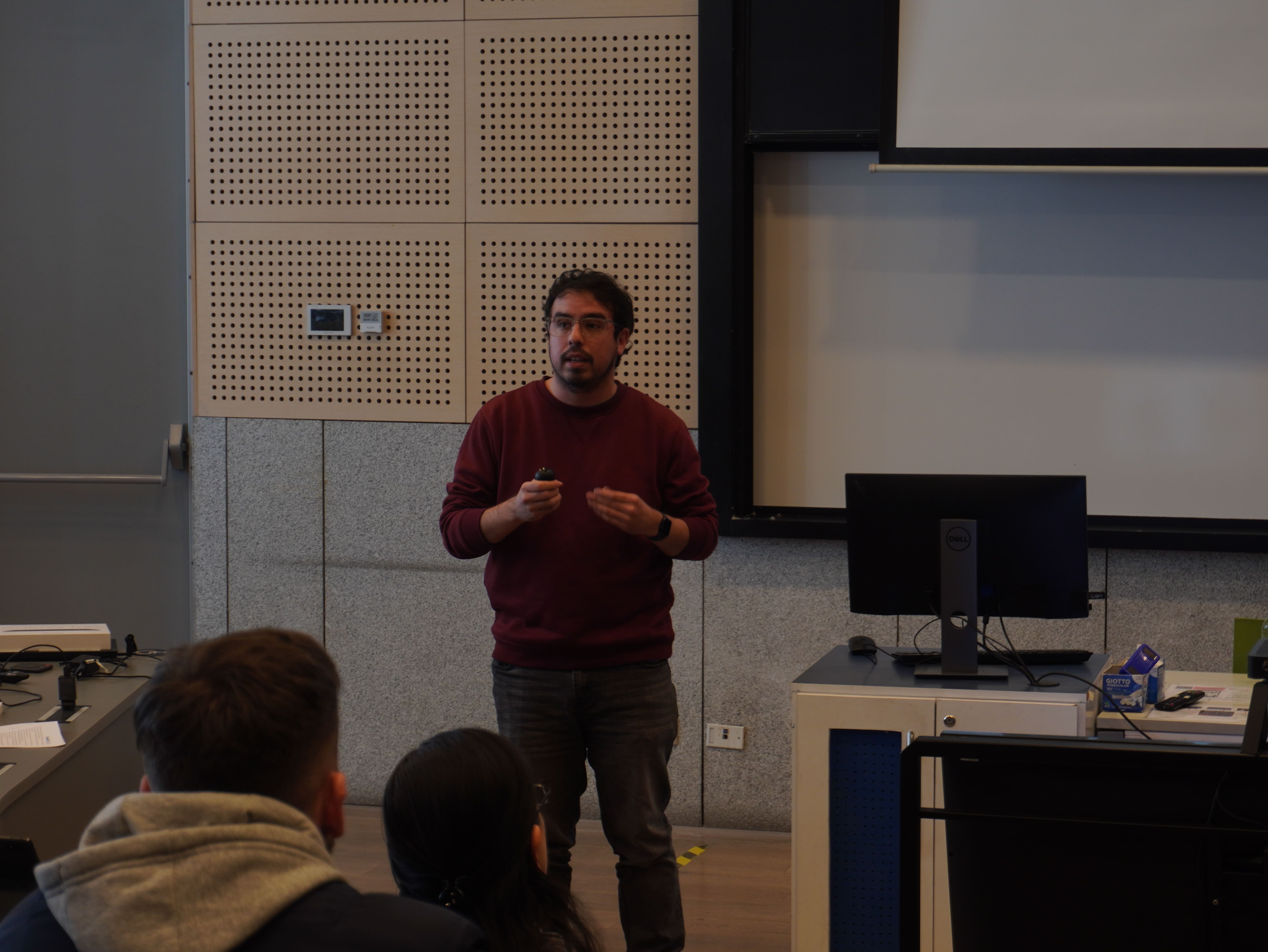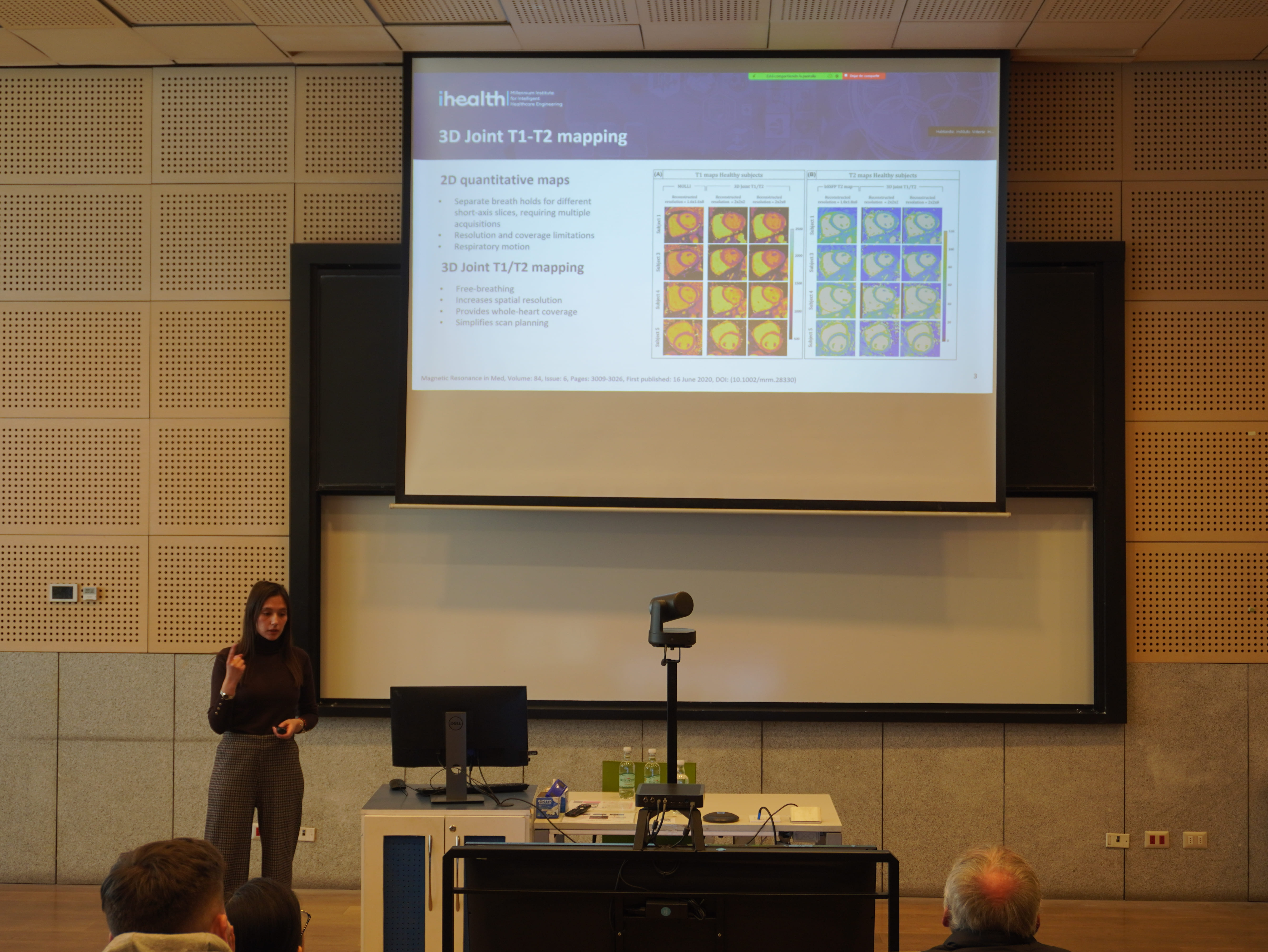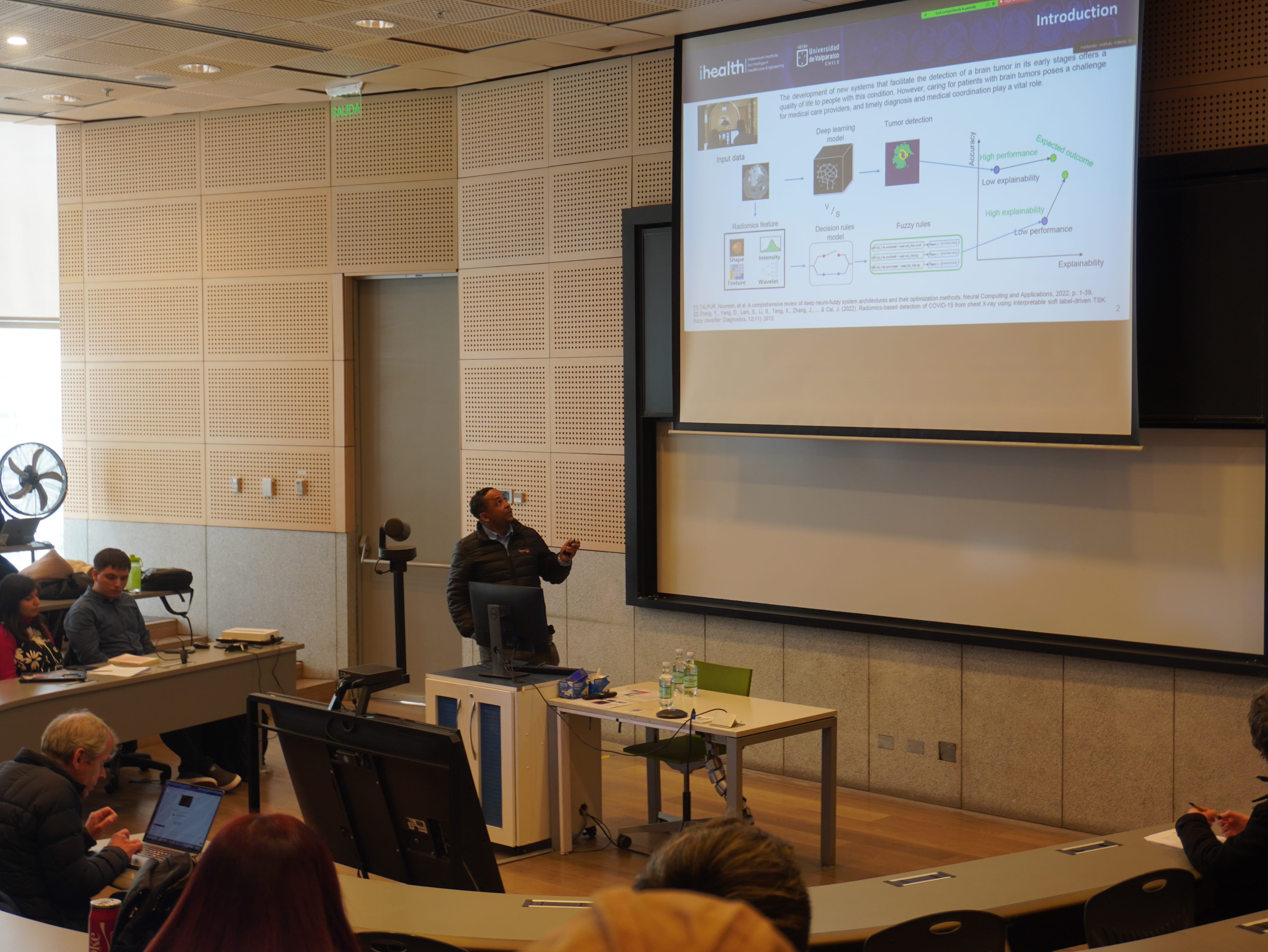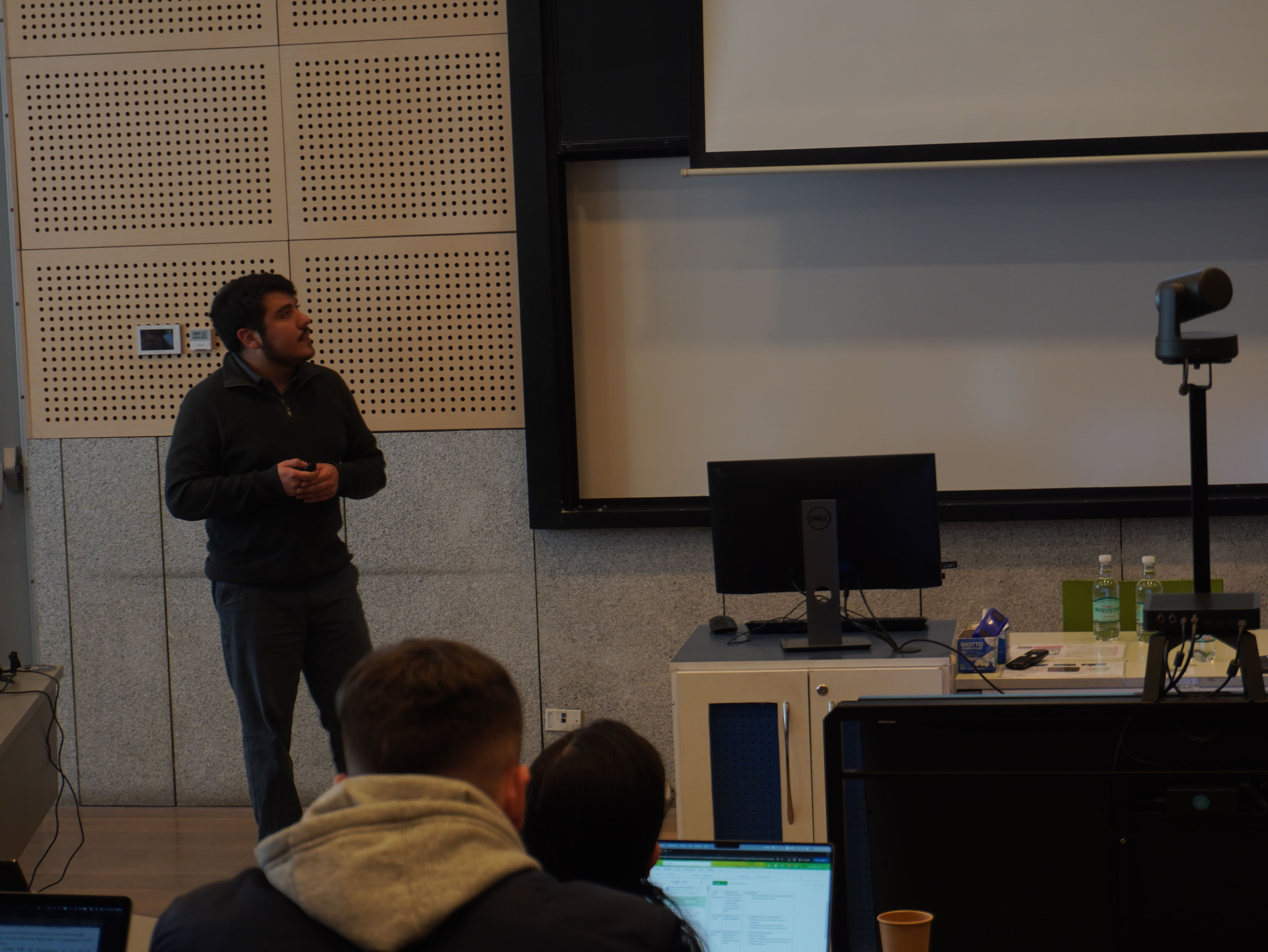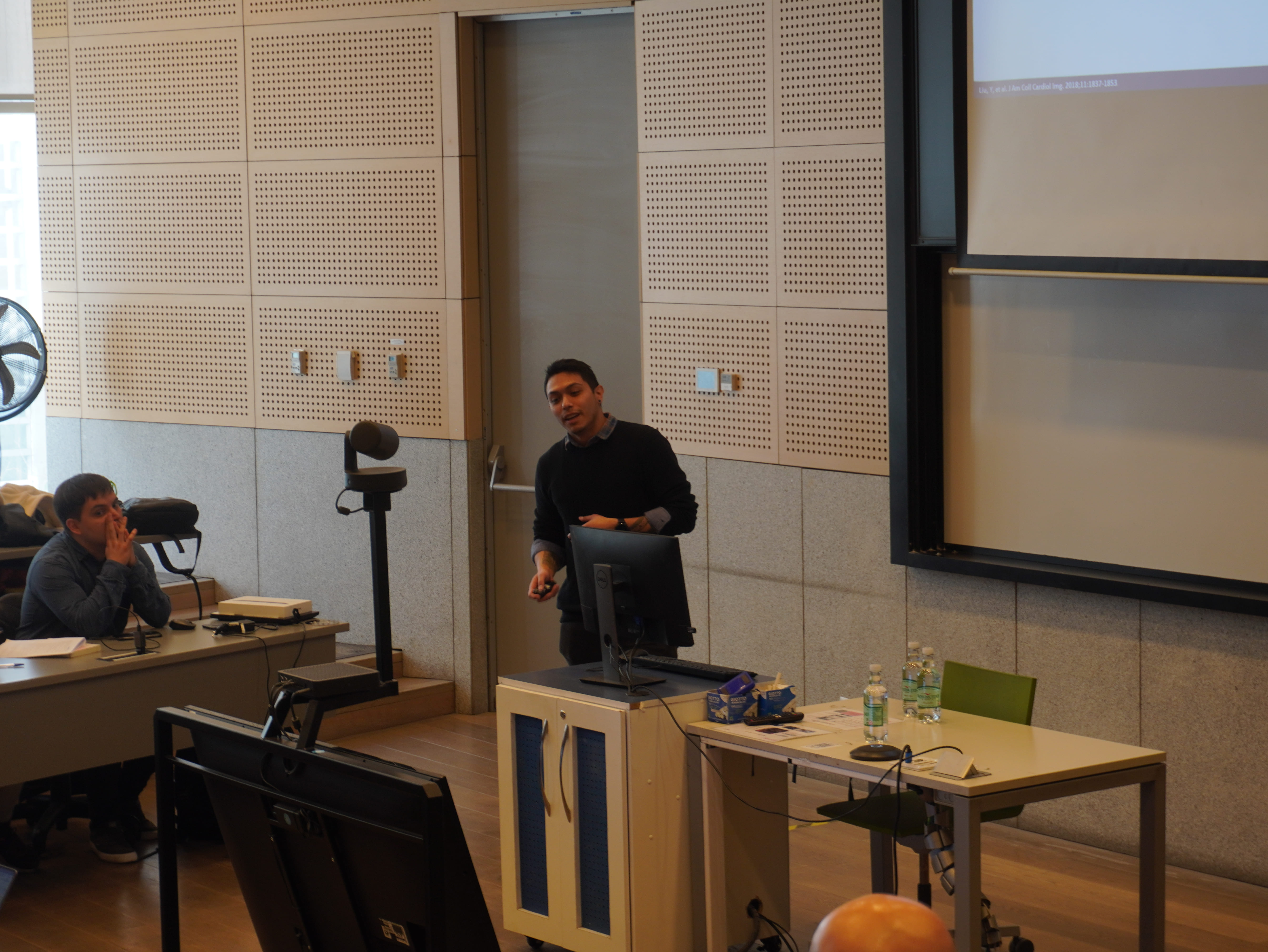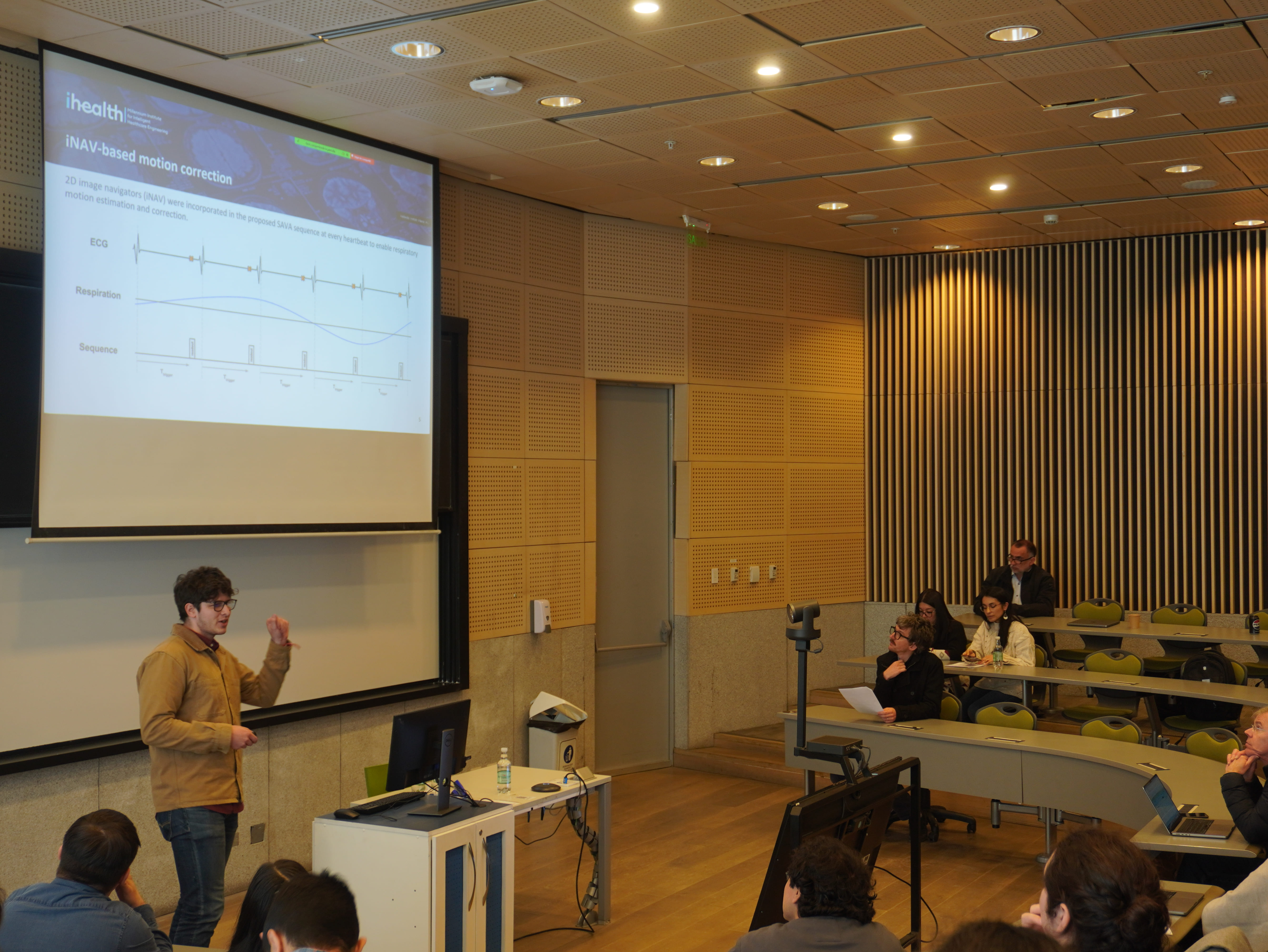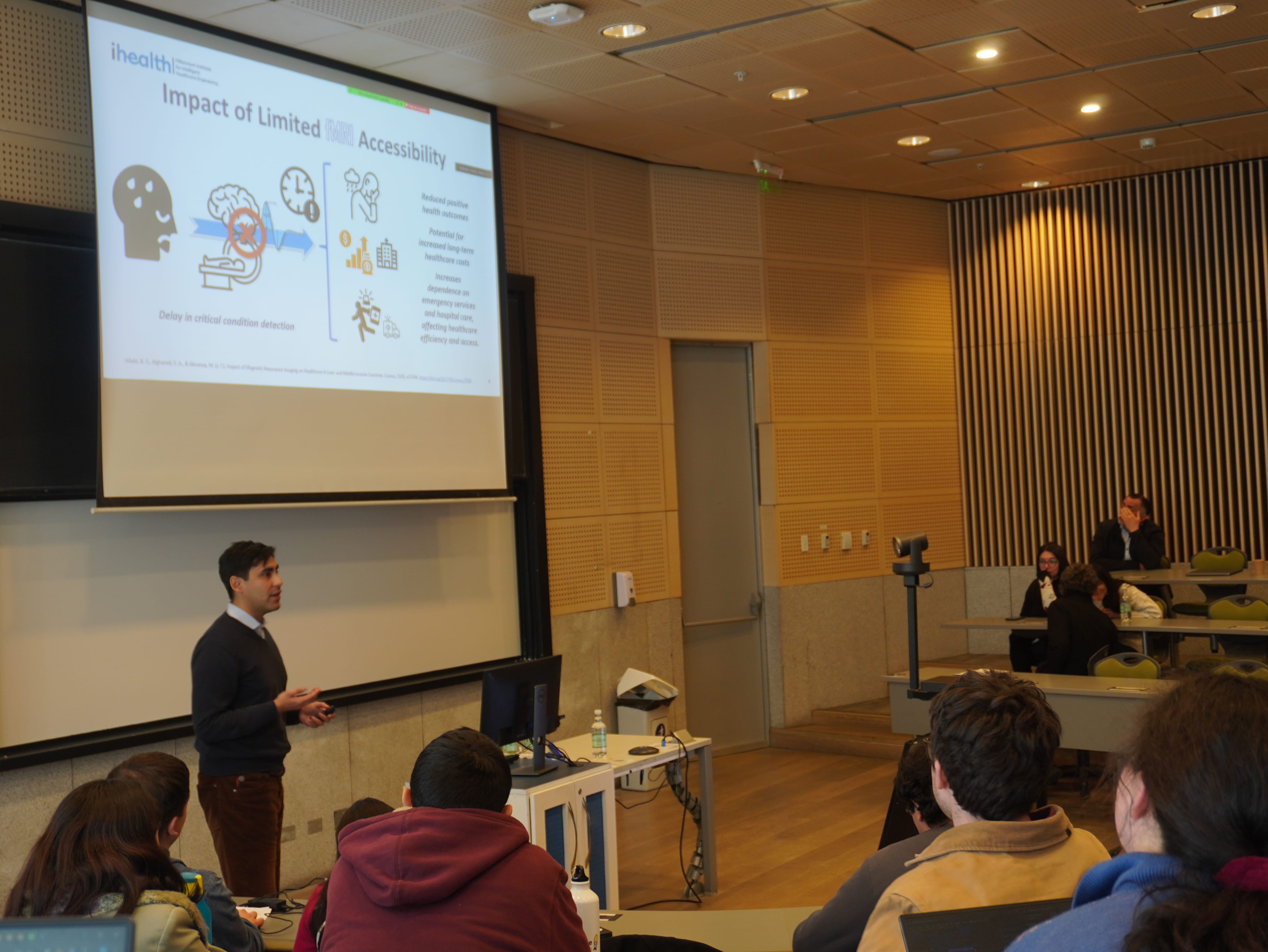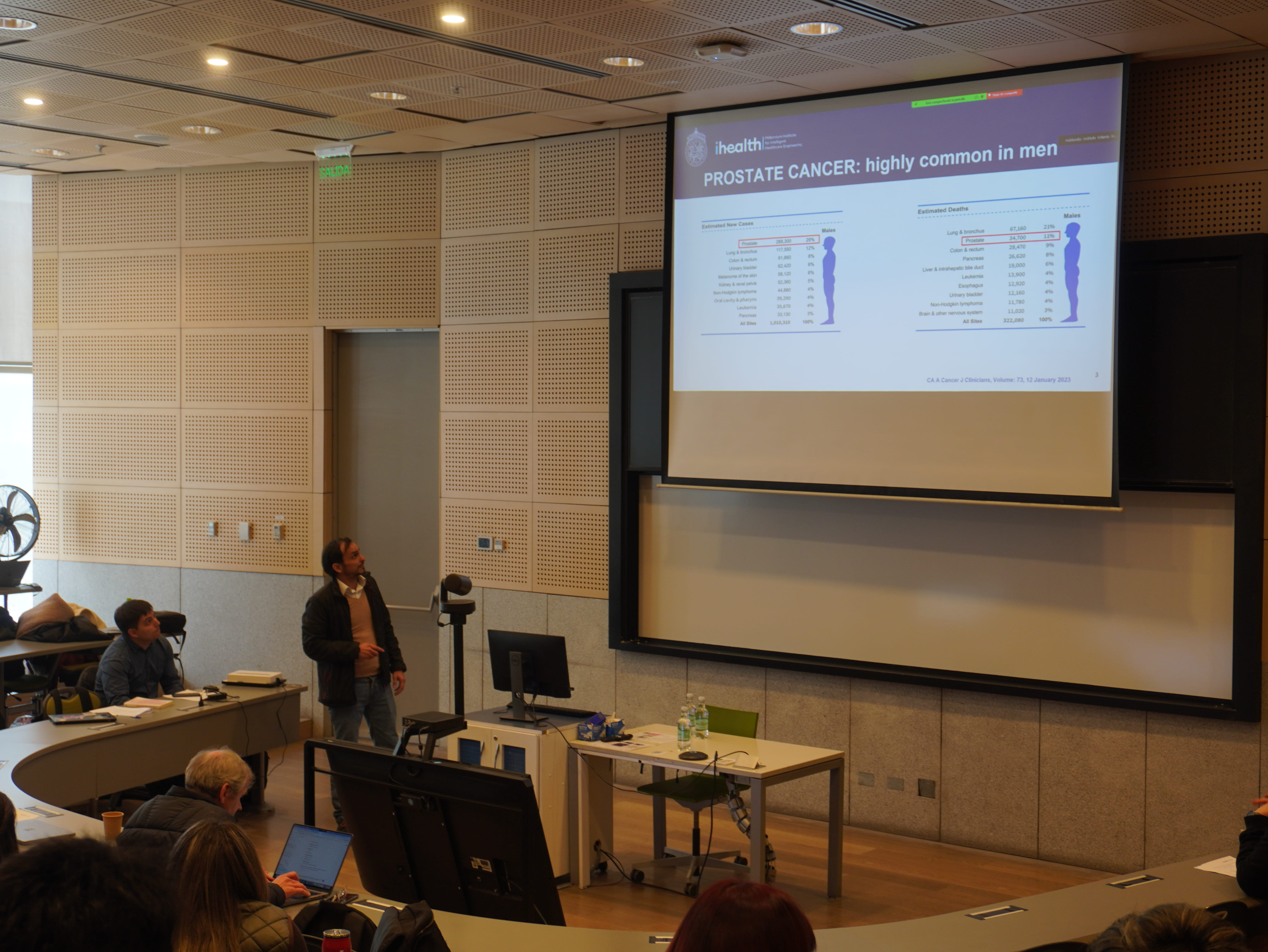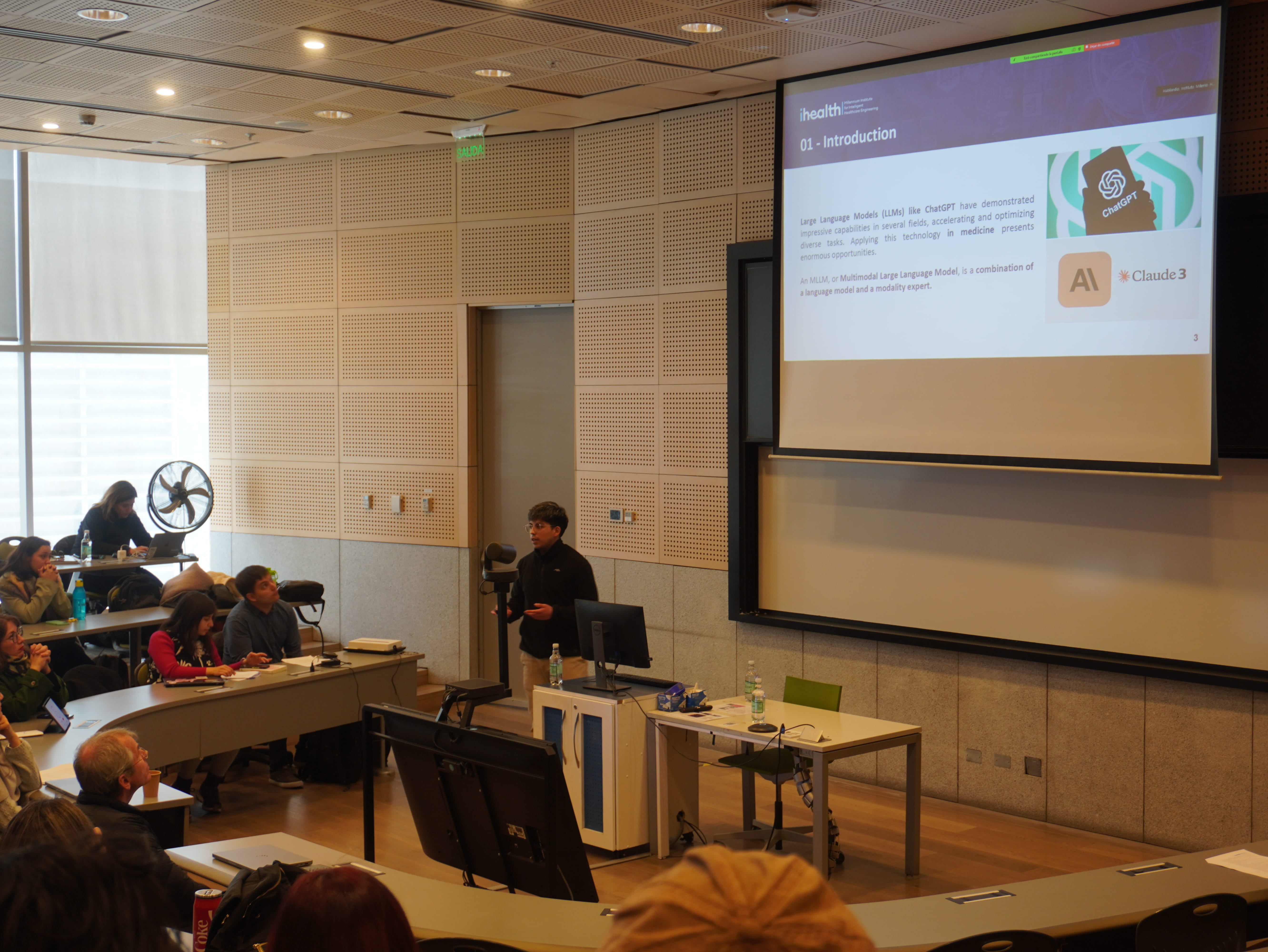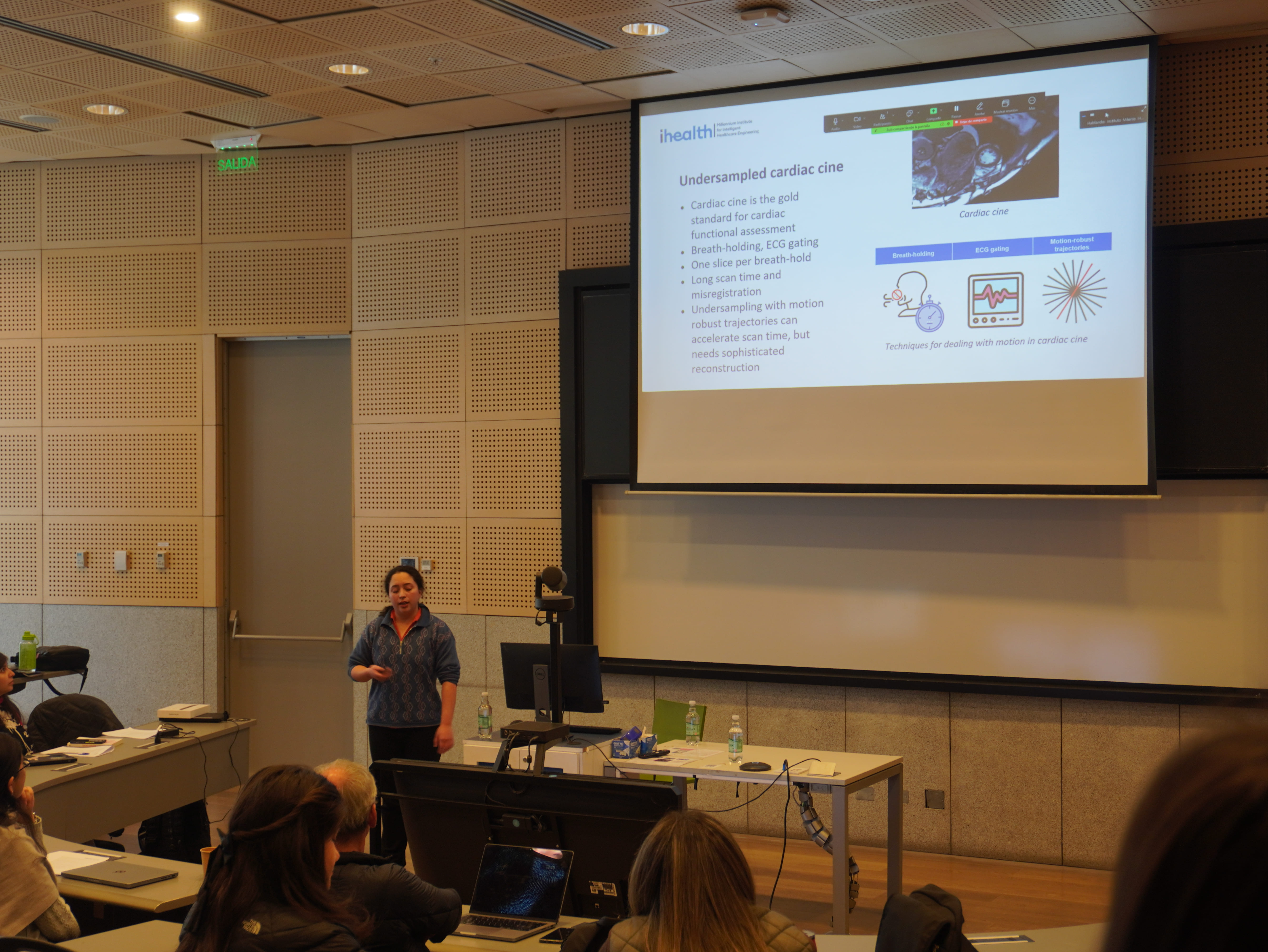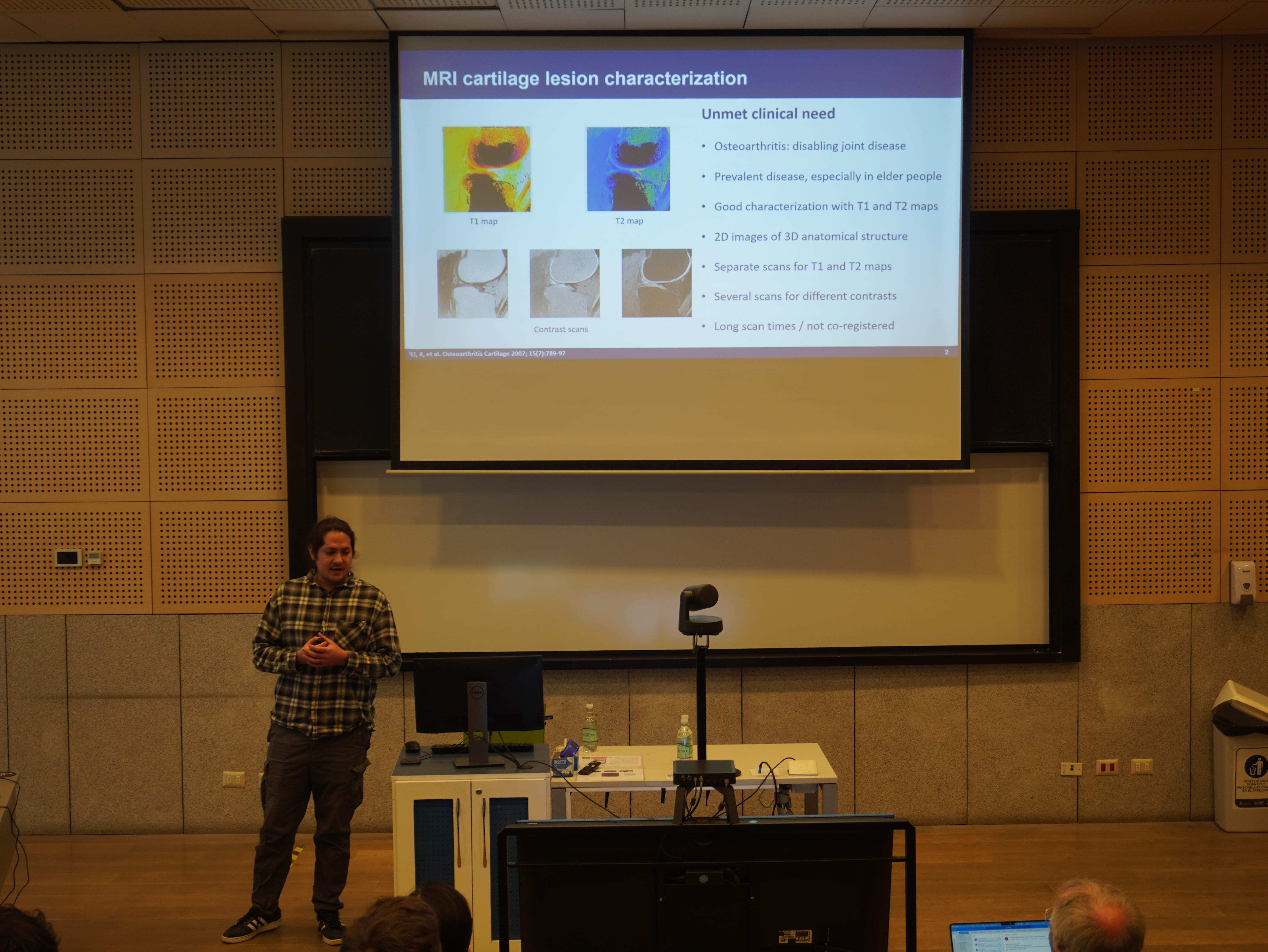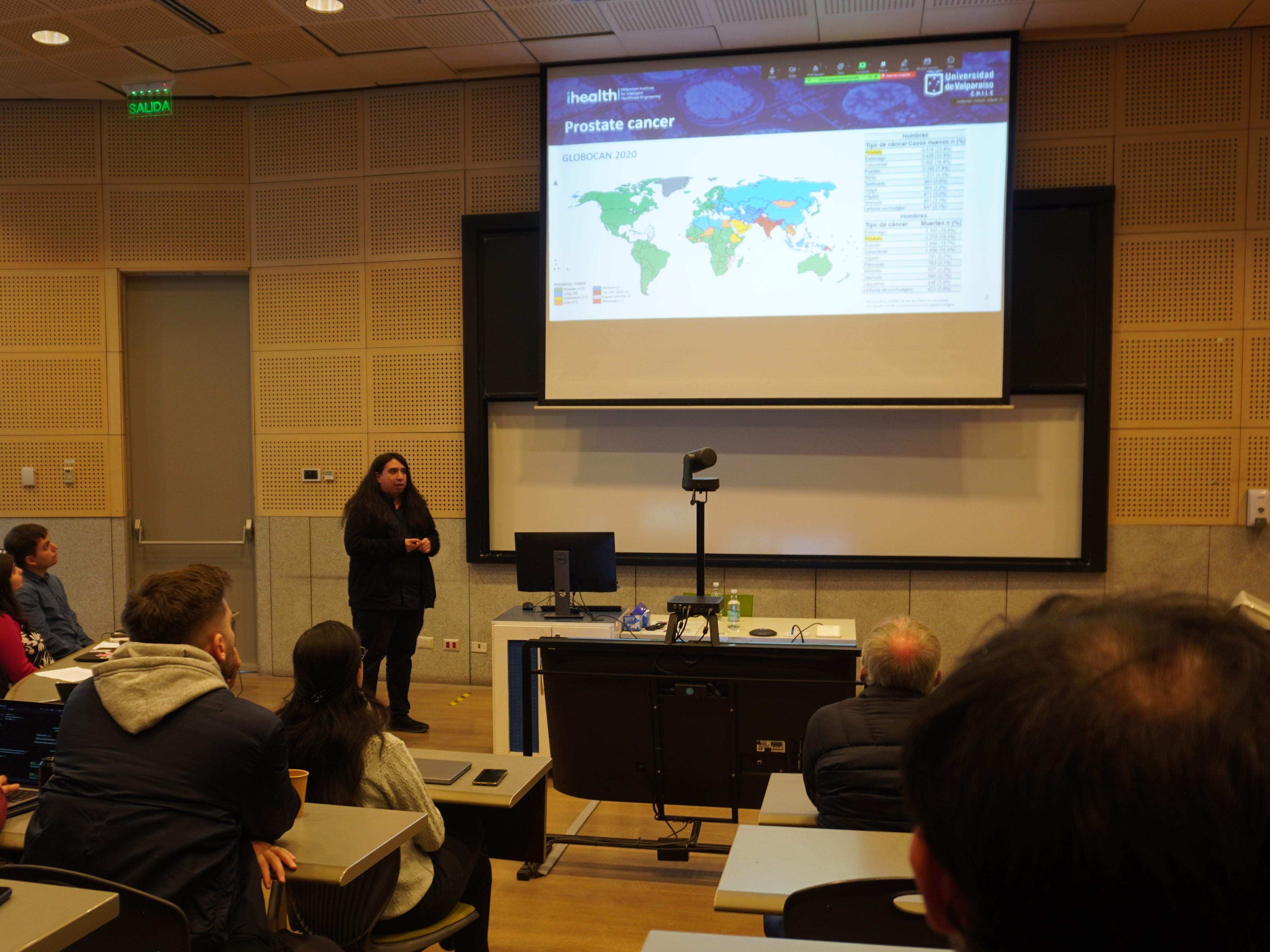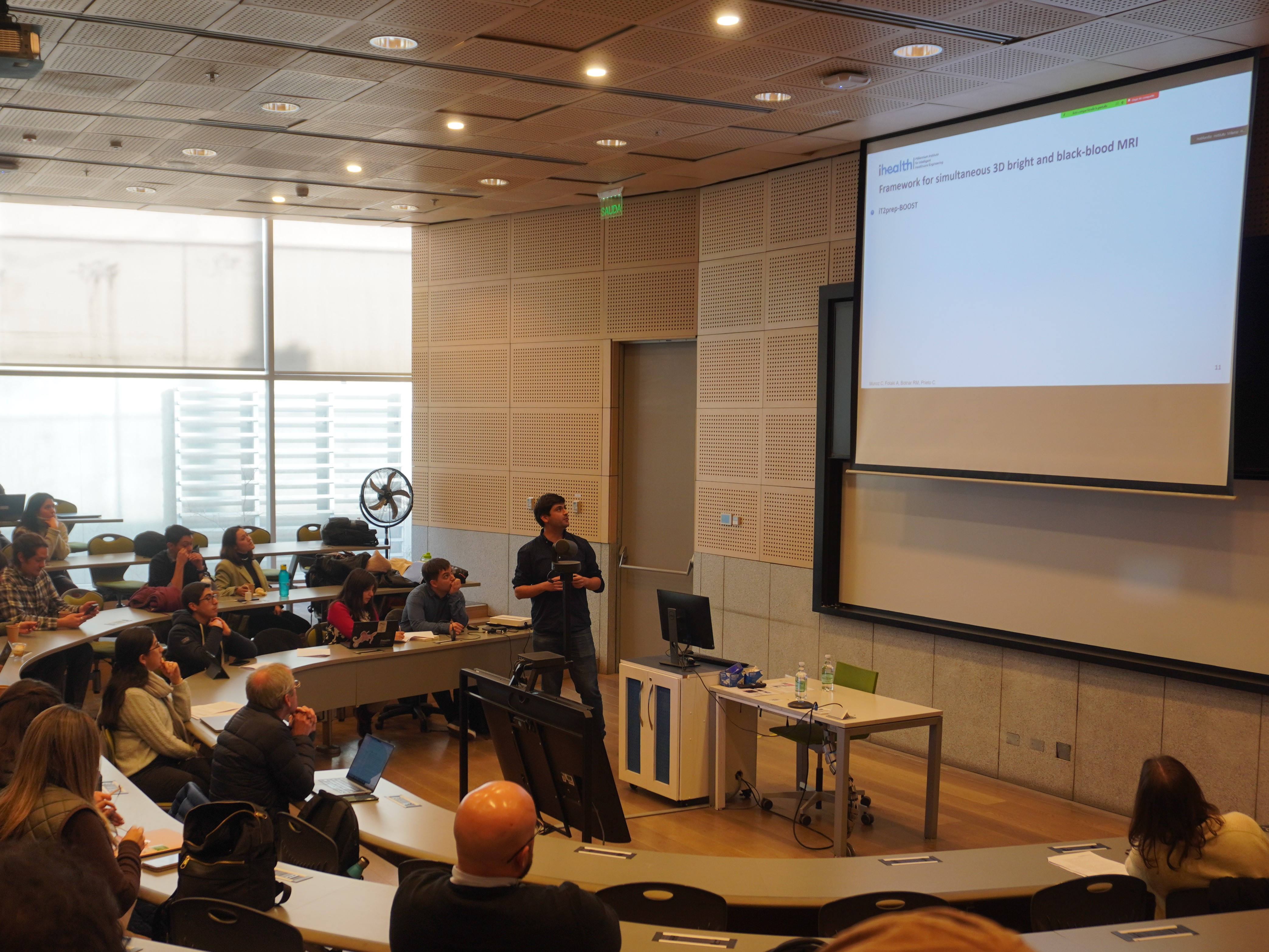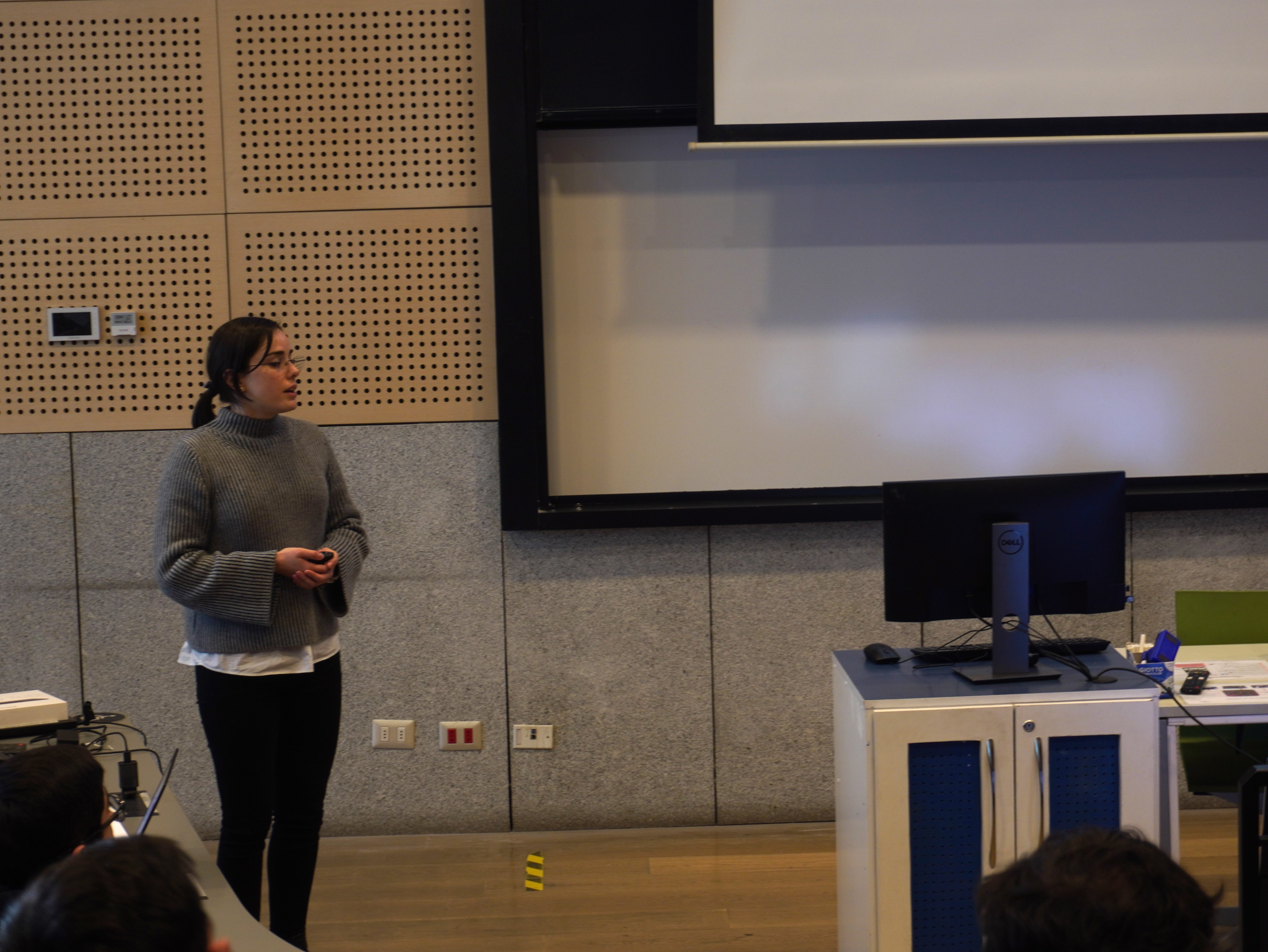The iHEALTH Community Gathers at the 3rd ECR Symposium
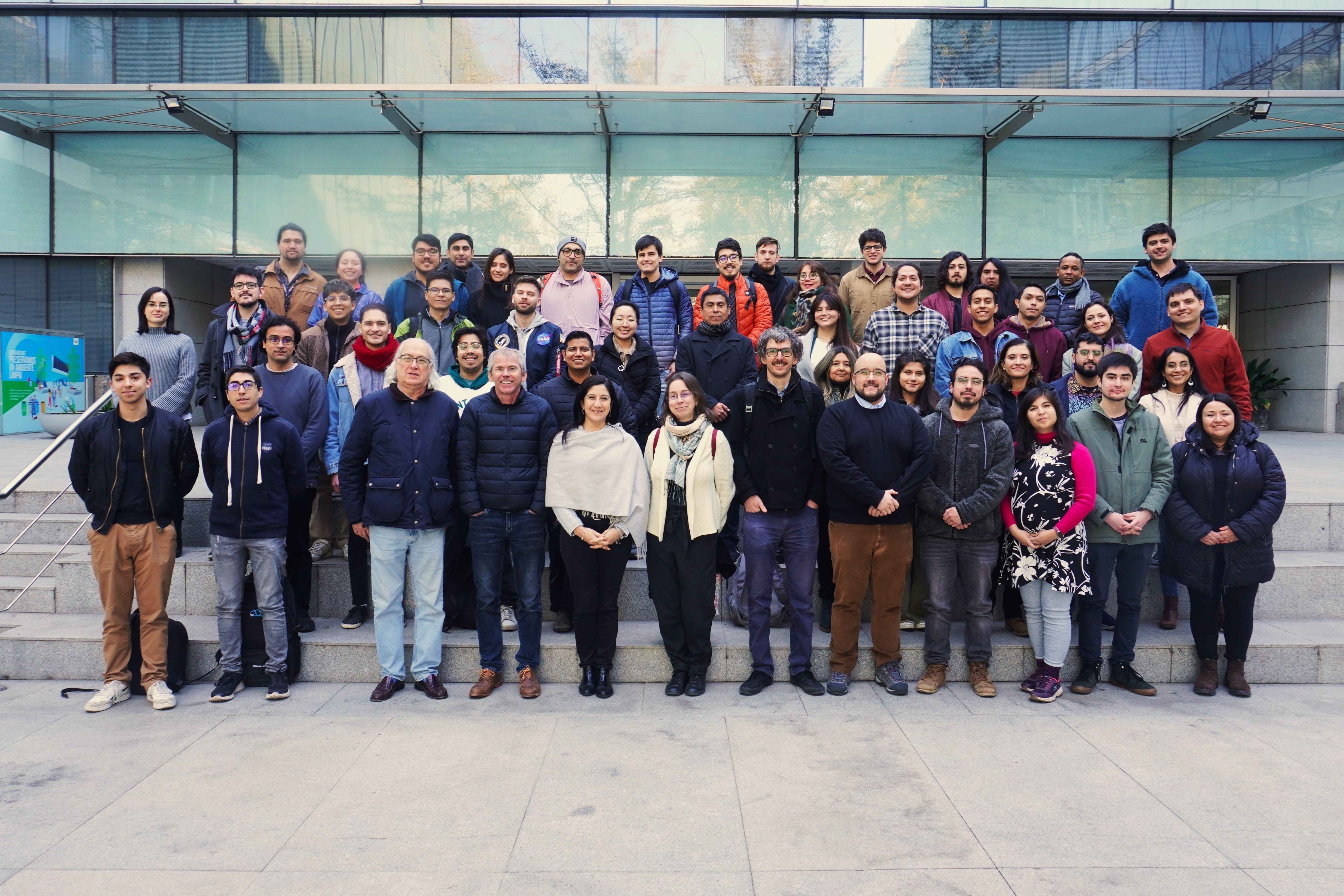
On Friday, July 12, the community of the Instituto Milenio iHEALTH participated in the ECR Symposium 2024, the third edition of the event where master's and doctoral students, young researchers, and postdoctoral researchers presented the progress of their research.
At the Faculty of Physical and Mathematical Sciences of the University of Chile, the day began with presentations from the international guests of the event.
Dr. Alejandro Frangi presented the talk “On Trials and Tribulations - Safer, Faster, and More Sustainable Medical Devices for Better and More Equitable Care”, in which he provided a quick introduction to new medical technologies and the need for rigorous scientific testing to ensure the safety and efficacy of these products. Frangi explained how in-silico trials, that is, computational trials conducted on virtual patient populations, can predict rare side effects and failure modes of medical devices before human clinical trials. This is especially relevant for hard-to-study groups, such as pediatric patients and rare diseases.
Dr. Maxim Zaitsev, in the talk “Towards open-source MR methodology with Pulseq”, addressed the challenges in developing and implementing new magnetic resonance imaging (MRI) acquisition techniques due to proprietary restrictions by equipment manufacturers. He explained that these limitations hinder scientific and clinical collaboration and slow the adoption of new imaging methods. Zaitsev presented Pulseq, an open-source framework that facilitates the design and execution of MRI pulse sequences in visual programming environments like Matlab or Python, allowing the sharing and reproduction of exact MRI sequences, promoting a culture of open and collaborative science, and overcoming the proprietary barriers that currently fragment the research community.
Subsequently, the presentation dynamics for the participants consisted of 8-minute oral presentations and 5-minute power pitches. Doctoral and master's students, as well as pre-doctoral and postdoctoral researchers, had the opportunity to share the results of their research and benefit from the wide diversity of knowledge presented during the day.
Benjamín Llancao, a master's student in Electrical Engineering at the University of Chile, who presented part of his research “Detection and Identification of Pituitary Microadenomas Using a Multimodal Language Agent”, commented that “participating in the symposium was a new and challenging experience. It was the first time I presented my work to students and researchers from other laboratories, allowing me to step out of my comfort zone and face a new audience. Additionally, it was enriching to observe other research and discover new ideas that could be applied in future projects.”
**On the other hand, Matías Paredes, a pre-doctoral researcher at iHEALTH, who also participated in the day, presenting his work “Simultaneous Contrast-Free 3D Aortic Lumen and Vessel Wall Imaging at 0.55T at systole and diastole”, commented that the experience served him “as an excellent test or simulation for what one ultimately faces in international conferences.” He also added that “presenting is a good opportunity to structure the research one works on in order to compress it into a presentation and see how the audience reacts to what is presented, whether it is understood or not.”
The extensive day was positively evaluated by a large part of the community present during the event. With the realization of this type of activity, iHEALTH hopes to contribute to the academic development of its members, as one of the key objectives of the institute is to train the next generation of scientists who can transform and improve the field of image-based medical care, leveraging new methods at the interface of medical imaging physics and engineering, artificial intelligence, and medicine.
